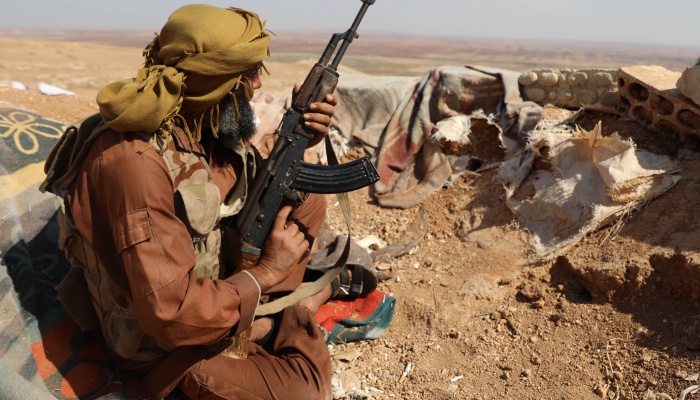Turkish-backed rebels said Sunday they expected to finish withdrawing heavy weapons from a planned buffer zone in northwestern Syria within days under a deal to stave off a regime attack, AFP reported.
Regime ally Russia and rebel backer Turkey reached the agreement on Sept. 17 for the northwestern region of Idlib on the Turkish border to avert what many warned would be one of the worst humanitarian disasters of Syria’s seven-year conflict.
But Syrian President Bashar al-Assad said on Sunday the deal for the country’s last major opposition bastion was just a “temporary measure” before the government retook the region.
“The agreement is a temporary measure through which the state has realized many achievements on the ground starting with stemming the bloodshed,” state news agency SANA reported Assad as saying.
Idlib “and other Syrian territory still under terrorist control will return to the Syrian state,” he reportedly said at a meeting of the central committee of his Baath party, employing the regime’s usual term for both rebels and jihadists.
Last month’s agreement is to create a 15 to 20-kilometer (9-12 mile) demilitarized area ringing the Idlib region.
Under the deal, all rebels in the buffer zone must withdraw heavy arms by Wednesday, and radical groups must leave by Oct. 15.
The National Liberation Front (NLF) announced Saturday that it has begun withdrawing heavy arms from the zone as part of an agreement between Russia and Turkey.
“We began to withdraw our heavy weapons from the demilitarized zone to rear positions,” NLF spokesman Naji Mustafa told AFP.
“The operation will last several days,” he said, adding that the weapons will be held by fighters deployed in positions outside the demilitarized zone.
According to Turkey’s state-run Anadolu news agency the rebel group is set to complete on Monday the withdrawal of all its heavy weapons from Idlib frontlines.
The NLF is the main Turkey-backed rebel alliance in the Idlib region, but jihadist heavyweight Hayat Tahrir al-Sham (HTS) holds a large part of the province and the zone.
HTS, led by former al-Qaeda fighters, has yet to announce its stance on the buffer zone deal.
In recent weeks, Turkey has deployed troops at “observation posts” it set up in rebel-held areas of Idlib and neighboring Aleppo.
Nawar Oliver, an analyst from the Turkey-based Omran Centre for Strategic Studies, said pro-Ankara fighters giving up their heavy weapons on the front line leaves them vulnerable to a regime attack.
But “the Turkish military should have some kind of heavy artillery” with them, he said.
The Syrian Observatory for Human Rights war monitor said the withdrawal of weapons had already started a week ago and would continue for several more days.
“But the rebels only hold a third of the buffer zone,” the head of the Britain-based monitor, Rami Abdel Rahman, said.
HTS and other jihadists, who control around 70 percent of the planned demilitarized area, pose the main challenge to its implementation, he said.
None have accepted the Russia-Turkey deal, yet they are expected to withdraw from the zone by Oct. 15.



